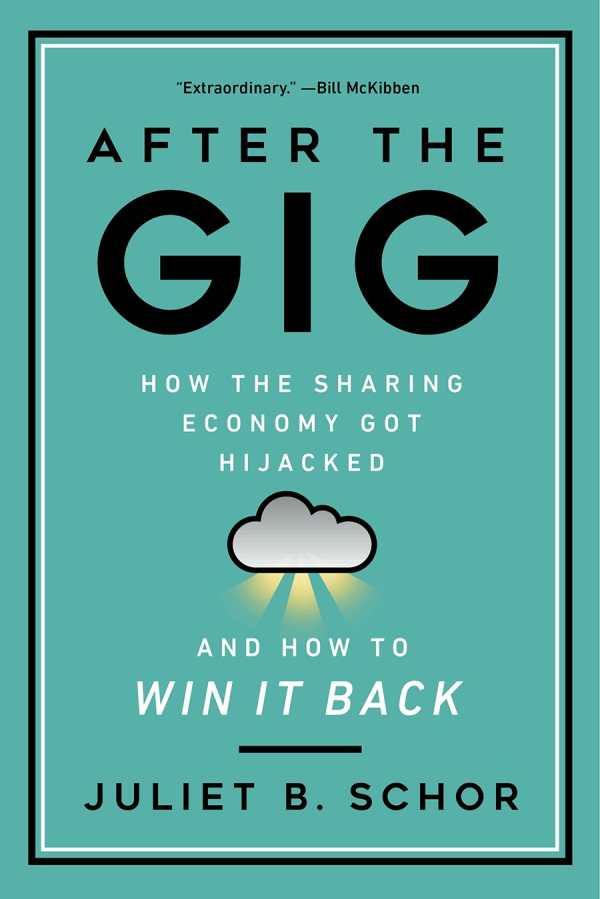After the Gig
How the Sharing Economy Got Hijacked and How to Win It Back
The surprising trajectory of the shared economy is laid bare in Juliet B. Schor’s After the Gig.
Out of the 2008 financial collapse and into a world of unfulfilling work on the dreaded nine-to-five schedule stepped a new idea, full of promise and hope. Digital technology—more specifically, the platform work of a sharing economy—was thought to be a way to find meaningful employment while prioritizing life-friendly schedules.
The benefits of the sharing economy were to be threefold: economic, social, and environmental. However, put to practice, the sharing economy soon began to disappoint. Wages for workers through platforms such as Lyft, Favor, and Task Rabbit dropped, saturation worsened, and finding a gig became a challenge. Adding to workers’ frustrations were problematic ratings systems, which Schor calls an outsourcing of quality control and human resources to the consumers themselves.
Schor’s highlighted examples demonstrate the paradox of dependency as a satisfaction indicator: the less dependent a worker is on platform work, the better their experiences are reported to be. Supplemental earners can practice discernment in accepting jobs, while those dependent on platform work for rent and other necessities put themselves in unsafe or unfair situations to make ends meet and ensure a high rating.
On a subject where myriad colorful stories exist, this information is presented in a direct fashion, with sometimes confusing quotes as a complement. Data is plentiful throughout; it gets to the bone of what is going awry with the shared economy, on which so many pinned hopes of freedom and economic independence. Paths to improvement are delineated with care, through examinations of the regulation structures practiced in Europe and globally to ensure fair wages and corporate accountability.
After the Gig is eye-opening as it deconstructs the promises, and downfalls, of the sharing economy.
Reviewed by
Tanisha Rule
Disclosure: This article is not an endorsement, but a review. The publisher of this book provided free copies of the book to have their book reviewed by a professional reviewer. No fee was paid by the publisher for this review. Foreword Reviews only recommends books that we love. Foreword Magazine, Inc. is disclosing this in accordance with the Federal Trade Commission’s 16 CFR, Part 255.

